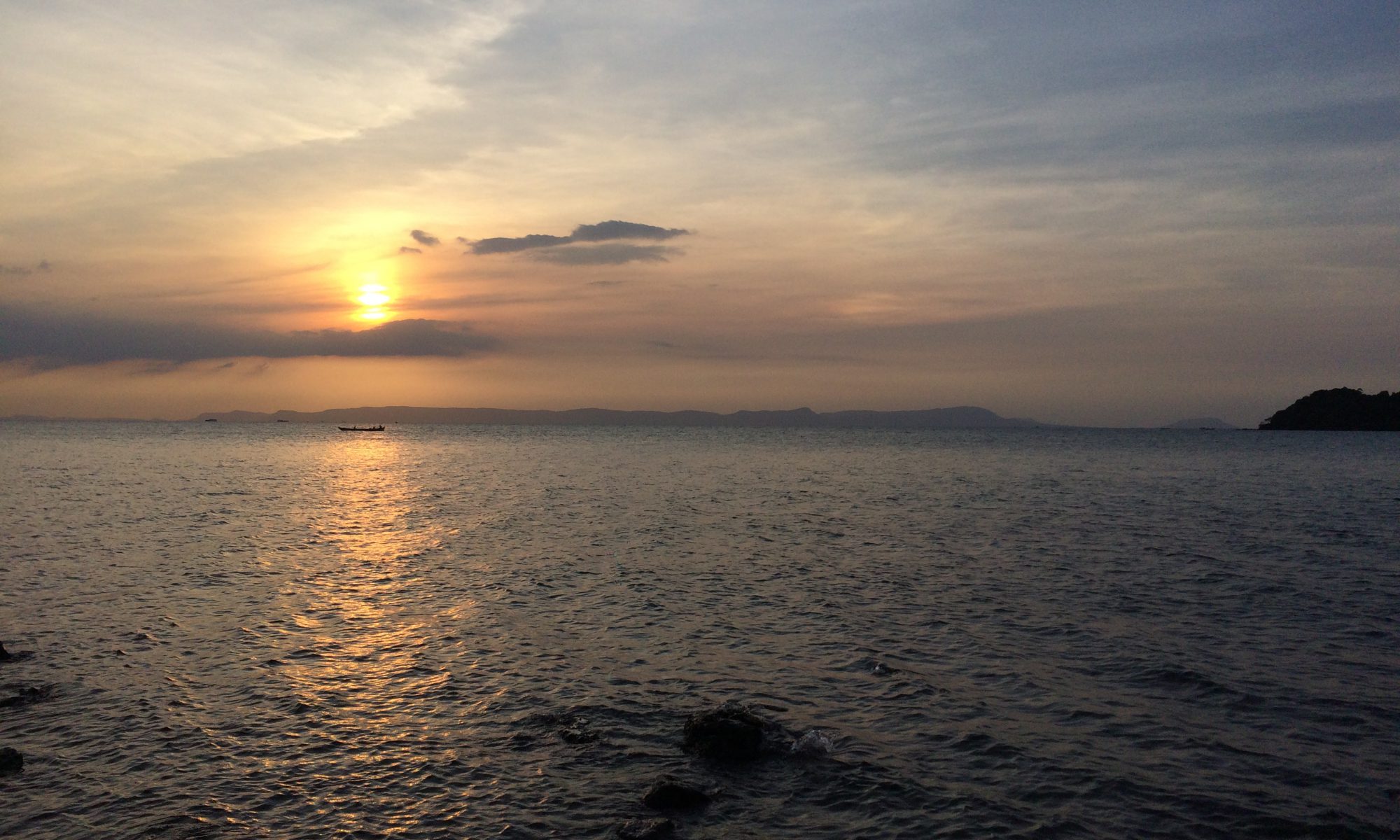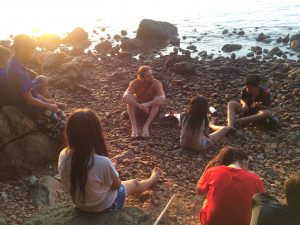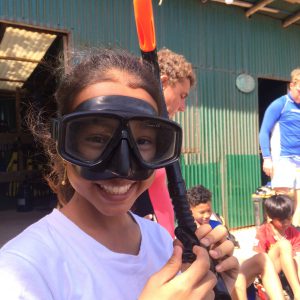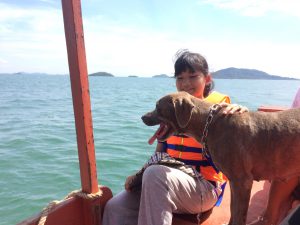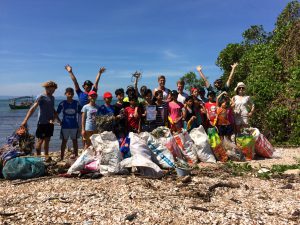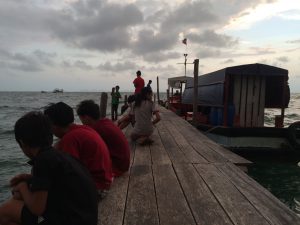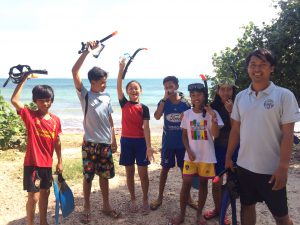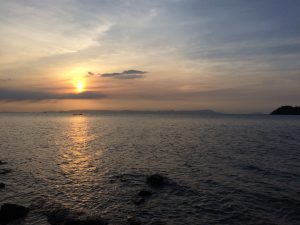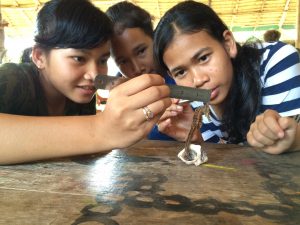Exploration: Marine Conservation
Facilitator: Karen Krieger
Students: 12
Over the past seven weeks I learned lots of new things about Marine life and Marine Ecosystem from Karen and Marine Conservation Cambodia (MCC). It was a really big powerfull experience to go to Koh Seh to meet with many new people and learn new things about Marine ecosystem around the island. This was my first time to go to an island to study about the Marine Life at Koh Seh(Kep). When I first arrived, I was thinking to myself that I was not safe at all and I am frightened because there are many new people that I never known before. But soon after I got used to it and I wasn’t even thinking about it. I have traveled many times on a boat but this trip, to the island, was the best trip ever. This trip made me know who I am and what should I do to represent myself as I am one of the Cambodian citizens. Also this is my best experience that I never have before, this trip taught me many new thing from the Marine Ecosystem around the island there at Koh Seh (Kep). Before I never cared or even thought about Marine Life, but when I came on the trip, Marine Conservation Cambodia (MCC) taught me a lot of new topics and new kind of organism that I never thought of before. When I first saw the ocean I felt fresh and peaceful but then I felt sad for the ocean that our people have used the ocean to be the road ways for the ships or boats to transport people from one place to another and export the product to many places all around the world. But some people take this advantage to make into the disadvantage for the ocean. Right now many people are doing a lot of fishing and using a lot of technology to do fishing, they also use trawling to do fishing. This is a very bad things that we all have give back to the ocean. My favorite things that I have learned in this trip is that I had studied about the Reef Introduction. According to what I had learned from Amick is that there are 1000 Coral Reef species. Do you know why coral reef are important?? The reason that coral reefs are important is because they provides the food for other organisms, 33% of the amount of coral reef is fish habitat. Coral reefs protect 20% of the world’s coast. After I went there I changed my mind about the marine life. I think that people in Cambodia should be conserving the ocean and trying to keep it sustainable by not doing illegal fishing.
So as soon as the people stop doing the illegal fishing and trying to conserve the ocean, like what MCC is doing right now, Cambodia will be a wonderful country with more biodiversity in the ocean. This positive impact will also give a positive effect on our economy the more we stop doing the bad thing more tourism will be increase more and more. My best memory and best experience are, first is to go scuba diving and snorkeling in the ocean to see the organism under the ocean. The second one is to meet new people that participate together to help change Cambodia. These things make me felt hopeful for my country and Cambodian people for the future.
Also we’ve been working really hard to finished one professional proposal that talk about our exploration and convince our director to allow all the students to do a year long plan project about Marine Conservation in Cambodia. In the feasibility I was written about Proposed Solution.
Read this to understand about the solution of the Fishermen in Cambodia:
Proposed Solution
Algal farming could be one solution for an alternative livelihood for illegal fishermen in Cambodia. Algal farming is the cultivation of algae that can grow in brackish, salt or polluted water. The products that are made from algae are the natural solutions to energy, food, economy and climate challenges that are facing the whole world today. In fact, many algae, both micro and macroalgae (seaweeds), are already used in food products. Algae reproduces rapidly and needs only sunlight, water, and carbon dioxide to grow.
Algae are known to be one of the longest term sustainable sources of biomass and oil, food and other products. According to the Proceedings of the International Symposium on Agriculture and Environment 2012, Vietnam, Indonesia, China, Russia, Philippines, Korea, Japan, Italy, Chile and Taiwan are the top ten exporters of marine products, which includes fish and algae farming. Presently, the algae industry is using science and technology to increase the algae products into markets growth. So this is an exciting opportunity for Cambodia.
Vietnam, a bordering country, is one of the top ten algae products exporters in Asia. Since 1984 to present the world production of marine algae has grown 119%. Large-scale algae farming are in the Asian countries, because there is a high demand for marine product. According to the Economics of Adaptation To Climate Change, in 2008 the aquaculture production in Vietnam was valued at 33 million VND which was a 6.6% increase of the national GDP. As reported by Fisheries and Aquaculture Department of Vietnam, during the last two decades, there was a rapid growth in the aquaculture sector.
Algal farming could be an alternative solution for illegal fishermen because in Asia algal products are in demand. Vietnam has a similar marine ecosystem to Cambodia and they have good algal farming strategies. They are also a really big algal products exporter so Cambodia can communicate with them to learn more about algal farming. If Vietnam, a bordering country, is successful, Cambodia can also do that too.
These are some photos of my exploration:

